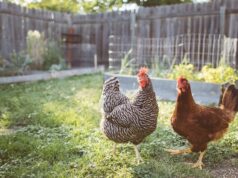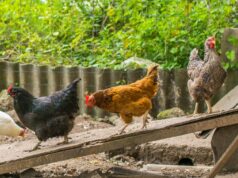For those invested in the rewarding journey of raising chickens, one of the ultimate joys is collecting freshly laid eggs. Yet at times, hens inexplicably cease production, leading to our pressing inquiry: why arent my chickens laying eggs? Understanding the intricate factors that influence egg production can illuminate your path back to bountiful nests.

Factors Affecting Egg Laying
Theres a multitude of factors that could potentially disrupt your hens usual laying rhythm. By delving into these elements, you can more effectively address the situation and provide solutions tailored to your flocks unique needs.
Age of the Chickens
As chickens age, their egg-laying capabilities naturally decline. Typically, peak production occurs between 6 months to 2 years. If your hens have ventured beyond this prime laying age, it could significantly explain the decrease in egg production.
Understanding Peak Laying Age
For beginners, recognizing these cycles helps set realistic expectations. Understanding common chicken breeds and their laying patterns can further aid in planning. More on this topic can be explored through this detailed guide on hybrid layers vs heritage layers.
Nutritional Deficiencies and Diet
Proper nutrition ensures consistent egg laying. Hens might underperform if deprived of necessary vitamins and minerals, especially calcium. A balanced feed, supplemented with oyster shells, usually suffices to prevent dietary shortfalls.
Supplements and Feed Quality
Include diverse grains, fresh greens, and quality protein sources in feed to bolster egg production. Discover more about daily chicken egg care tips.
Environmental Factors
Light Exposure
Daylight length impacts egg-laying cycles. Hens require around 14 hours of light for consistent production. Short winter days can trigger a natural decline in output, a perpetually intriguing aspect to poultry enthusiasts.
Shelter and Comfort
Their surroundings decisively affect productivity. A stressful or uncomfortable coop heightens anxiety, reducing egg laying. Regular cleaning, optimal space, and adequate roosting elements are imperative.
Health Concerns
Disease and Parasites
Illness or parasite infestations significantly impede a hen’s ability to lay. Regular health check-ups and maintaining parasite control through dewormers and regular inspection are necessary measures. For signs of trouble, refer to signs of a healthy laying hen.
Molt
The natural molting process demands energy, which otherwise would be allocated to egg production. Expect decreased output during a hen’s molting phase, typically occurring annually in fall.
Stress Factors
Change and stress disrupt routine, dampening egg production. Be it predator attacks, new flock introductions, or stark environmental changes, ensuring peace minimizes disturbances to their laying cycle.
Managing Changes Effectively
Gradual integration of change is crucial in alleviating stress. Patience and attentiveness to your hens translate to fewer disruptions.
Commonly Overlooked Issues
Internal Layers
Rarely, eggs are laid internally. Often fatal, internal laying necessitates veterinary intervention. Observing and addressing egg-binding symptoms could save lives.
Egg – Eaters
Hens occasionally develop this habit, reducing yield. Prompt identification and intervention ensure the behavior doesnt perpetuate, safeguarding your precious supply.
Engaging the Flock
Creating Enrichment
Stimulate curiosity and exercise with diverse environments and toys. A happy flock is a productive flock.
Seeking Professional Help
When in doubt, veterinary consultation might reveal hidden threats or health considerations obstructing egg production. Seek professional input to make informed decisions.
Further Learning and Resources
Explore more strategies to enhance flock productivity through this external resource on managing egg surplus effectively.

FAQ
How long does a hen lay eggs?
Typically, hens remain productive for 2-3 years, with some heritage breeds laying longer, albeit less frequently.
What should I feed hens for better laying?
A balance of quality commercial feed, supplemented with grains, greens, and proteins maintains consistent laying.
Can a sudden change in diet affect egg laying?
Indeed, abrupt dietary changes could disrupt potential laying schedules, so gradual transitions are advisable.
This article contains affiliate links. We may earn a commission at no extra cost to you.











